Sales Team
Project quotes, partnerships, implementation
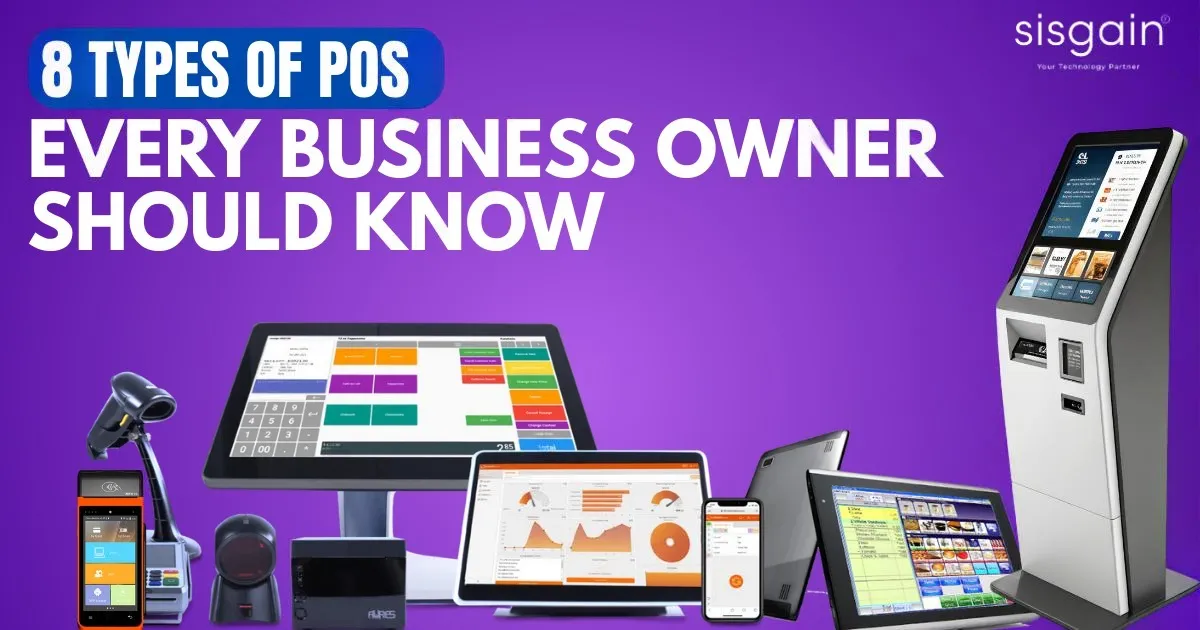
Running a business in today’s competitive environment requires more than just good products or services. The way you handle payments, manage inventory, and streamline customer experiences plays a huge role in your overall success. This is where Point of Sale (POS) systems come in.
So, what are POS machines? In simple terms, a POS machine is a device that allows businesses to accept payments and record transactions. Traditionally, it was limited to cash registers and card swiping terminals. But today’s POS terminals are much more advanced—they track sales, integrate with inventory, manage customer loyalty programs, and even connect to online stores. Whether you’re a retail shop owner, a restaurant manager, or an entrepreneur, understanding POS technology is no longer optional.
A Point of Sale (POS) system is the combination of hardware and software that records a sale whenever a customer purchases something. Hardware usually includes POS machines, card readers, barcode scanners, cash drawers, and receipt printers. The software powers these machines by processing transactions, calculating totals, applying discounts, and generating sales reports.
Over time, different POS systems have evolved to meet unique business needs. Some are cloud-based and accessible from anywhere, while others are mobile, designed for businesses on the go. Advanced systems even integrate with accounting, supply chain, and CRM tools to give business owners a 360-degree view of operations. Understanding the types of POS systems available will help you make an informed decision for your company.
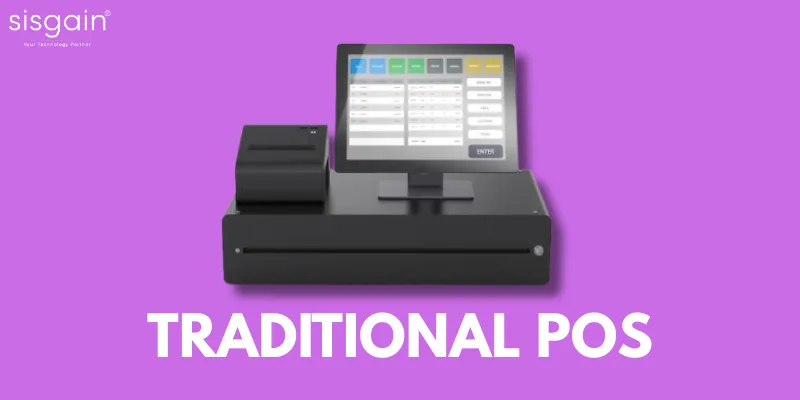
The Traditional POS system is the classic setup most people think of when they hear “POS.” It typically includes a cash register, receipt printer, barcode scanner, and payment terminal. You’ll often find these systems in supermarkets, small retail shops, and established restaurants that have been operating for many years.
Why businesses use it:
Drawbacks:
Although many businesses are shifting to newer POS types, traditional POS remains relevant in industries where reliability and offline functionality matter more than advanced features.
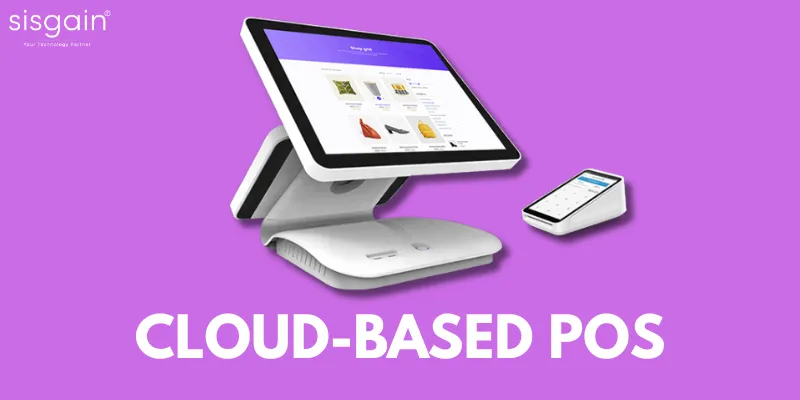
A Cloud-based POS system stores all transaction and sales data securely online, giving business owners the flexibility to access records anytime and from any location. This feature is particularly useful for business owners who manage multiple branches or travel frequently. Cloud POS systems offer real-time updates on sales, inventory, and customer activity, allowing businesses to make faster and more informed decisions.
Why it’s popular:
Limitations:
For industries like hospitality and retail, cloud-based systems are quickly becoming the standard. Restaurants, in particular, prefer restaurant POS system software powered by the cloud because it allows them to update menus, track orders, and monitor stock seamlessly across branches.
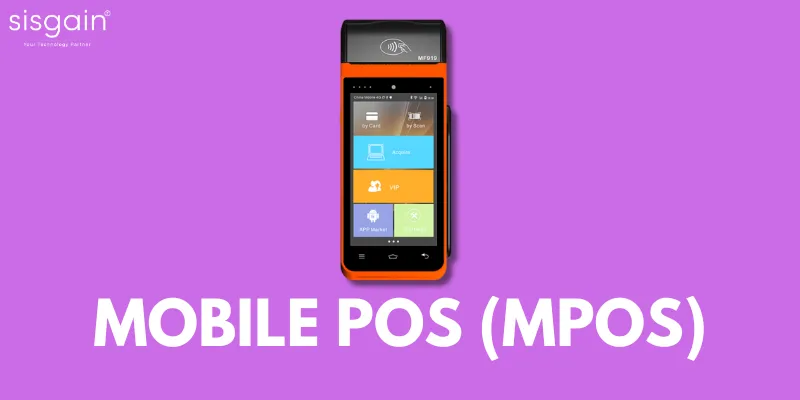
The Mobile POS (mPOS) system transforms a smartphone or tablet into a fully functional payment terminal using a small card reader and a mobile application. This type of POS is perfect for small businesses, startups, and entrepreneurs who need an affordable, portable, and flexible payment solution. With mPOS, you can process payments anywhere, whether you’re at a market, food truck, or pop-up event.
Best suited for:
Pros:
Cons:
This POS type is ideal for small businesses that prioritize flexibility over advanced features. Entrepreneurs looking to expand can later upgrade to more advanced POS software for small businesses.
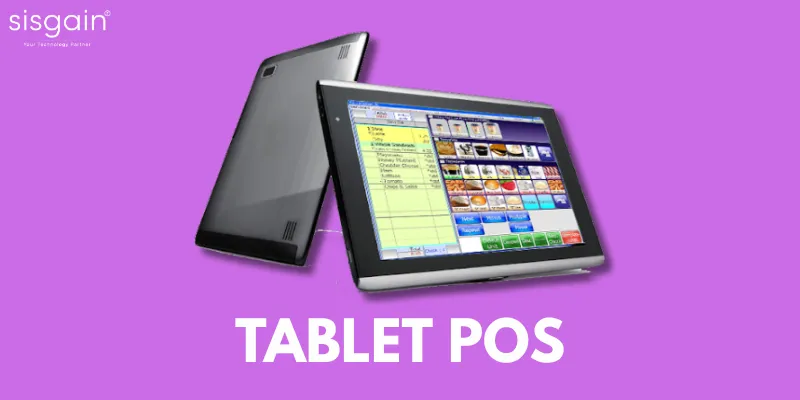
A Tablet POS system uses a tablet as the central device for processing sales, offering a modern and sleek alternative to traditional POS terminals. It’s ideal for businesses that want a stylish, compact, and easy-to-use checkout solution. Tablet POS systems are widely adopted by cafés, boutique stores, and small restaurants where counter space is limited, and a modern look enhances the customer experience.
Advantages:
Disadvantages:
This system is particularly attractive for boutique stores, cafes, and restaurants that value design and simplicity. Many companies also partner with an IT software solutions company to customize their tablet POS with features tailored to specific business needs.
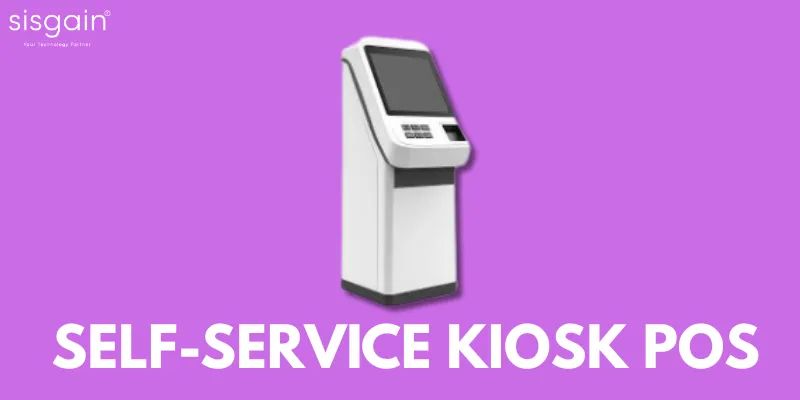
A Self-Service Kiosk POS allows customers to place orders and complete transactions on their own using interactive touchscreen devices. This technology has revolutionized industries where speed, convenience, and efficiency are crucial, providing a seamless experience for both customers and staff.
Common applications:
Why it works:
Challenges:
Self-service POS machines are becoming more common as businesses focus on providing customers with greater autonomy and convenience.
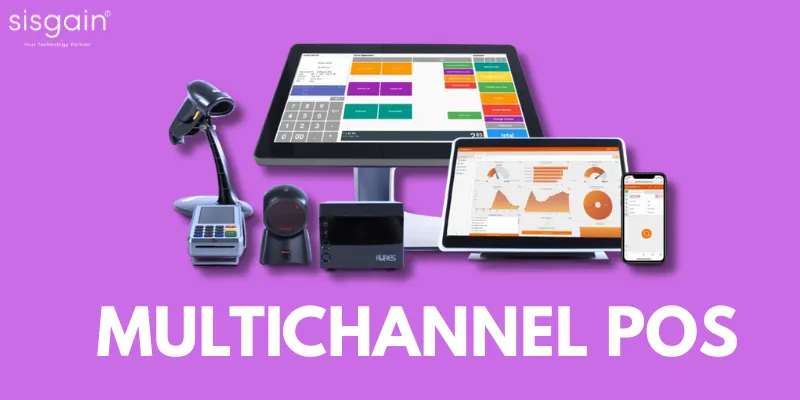
A Multichannel POS system connects all sales channels, including physical stores, e-commerce websites, and mobile applications, into a single, unified platform. This integration ensures that inventory, sales, and customer data are always accurate and up to date, helping businesses manage operations efficiently.
Benefits:
Challenges:
For retailers aiming for an omnichannel strategy, this is one of the most powerful types of point of sale systems. Businesses that sell both in-store and online benefit greatly from multichannel POS because it eliminates errors and stock mismatches.
An Open-Source POS system provides businesses with full control over their point of sale software. Unlike proprietary POS systems, open-source platforms allow companies to customize the software, add unique features, and integrate it seamlessly with other tools to meet specific business needs. This level of flexibility makes it ideal for businesses that have specialized workflows or require custom reporting, inventory management, or customer tracking features.
Pros:
Cons:
Many companies collaborate with IT companies to build tailored open-source POS platforms that align with their unique processes. This POS type is ideal for large enterprises or specialized industries.
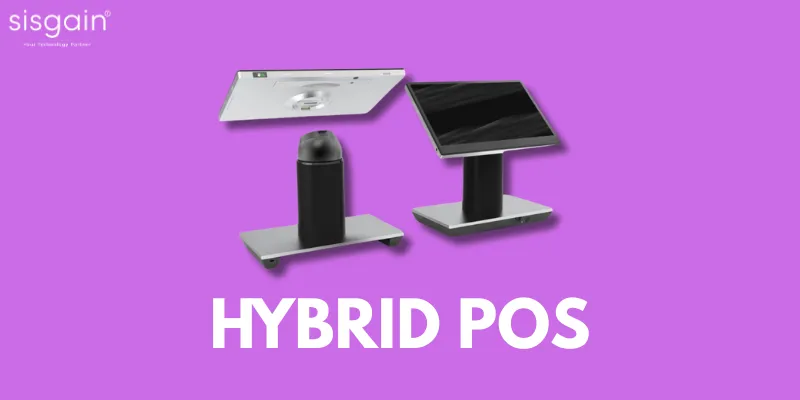
A Hybrid POS system combines the best features of traditional and cloud-based POS systems, offering both reliability and flexibility. This type of system allows businesses to continue processing transactions even when the internet is down, ensuring uninterrupted sales. Once connectivity is restored, all data is automatically synced to the cloud, keeping records accurate and up to date.
Why businesses choose it:
Downside:
Hybrid POS is a smart choice for businesses that want flexibility without compromising on reliability. It’s one of the most advanced and different POS systems available today.
Selecting the right POS system is crucial for the smooth operation and growth of your business. With so many types of POS systems available, making the right choice depends on understanding your unique business needs and goals.
By carefully analyzing these points, business owners can identify which of the POS types aligns with their long-term goals.
The world of POS technology is evolving rapidly, driven by changing customer expectations and advancements in technology. Here are some key trends shaping the future of POS systems:
Future-ready businesses are already preparing to adopt these innovations to stay competitive.
The types of POS systems available today give business owners the flexibility to choose solutions that match their operations. From traditional POS to hybrid POS, each system has distinct strengths that cater to specific industries and goals.
If you run a small business, starting with POS software for small businesses can streamline daily operations. For restaurants, adopting a restaurant POS system software ensures efficient order management and happier customers.
At SISGAIN, a leading software company, we provide tailored POS solutions designed to help businesses grow faster and smarter.
Project quotes, partnerships, implementation
Open roles, referrals, campus hiring